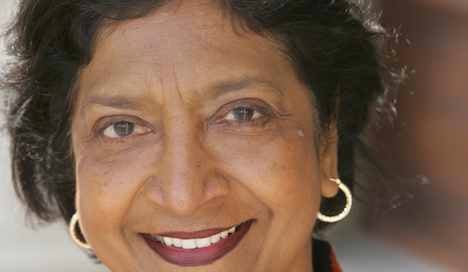"I believe these mass trials and death penalty convictions are obscene, and a complete travesty of justice," Pillay said in a statement.
The UN High Commissioner for Human Rights said she was "shocked and alarmed" by the sentencing Monday of three Al-Jazeera journalists, including Australia's Peter Greste, and 11 others sentenced in absentia to up to a decade in prison.
Those verdicts, along with the confirmation Saturday by an Egyptian court of the death penalty for 183 Muslim Brotherhood members and supporters, are the latest in a line of court cases "rife with procedural irregularities and in breach with international human rights law," Pillay said.
The journalists had been accused of aiding the blacklisted Muslim Brotherhood and tarnishing Egypt's reputation after the ouster of Islamist president Mohamed Morsi by "spreading false news".
Such charges are "far too broad and vague," Pillay said, insisting they "reinforce the belief that the real target is freedom of expression."
"It is not a crime to carry a camera," she said, adding: "It is not a crime to criticize the authorities or to interview people who hold unpopular views."
Pillay urged the authorities to "promptly release" all journalists and media employees jailed for doing their job.
She also voiced alarm that for journalists, bloggers and activists in Egypt, "harrassment, detention and prosecution . . . as well as violent attacks by unidentified assailants, have become commonplace."
The charges against the journalists were based on Egypt's anti-terrorism law, also used to bring convictions in two mass trials of more than 1,100 people in Minya earlier this year, resulting in more than 220 death sentences.
The UN rights chief, a former international judge, called on Egypt's government to review the laws used as a basis for the "highly contentious trials" and urged the judiciary to review the cases.
"There is a risk that miscarriage of justice is becoming the norm in Egypt," she said.
EGYPT
UN human rights chief condemns Egypt ‘abuses’
UN human rights chief Navi Pillay on Monday slammed Egypt's mass trials, which have led to at least 220 death sentences and seen journalists ordered to serve lengthy prison terms.
Published: 23 June 2014 23:14 CEST

UN human rights chief Navi Pillay. Photo: UNHRC
Url copied to clipboard!


 Please whitelist us to continue reading.
Please whitelist us to continue reading.
Member comments